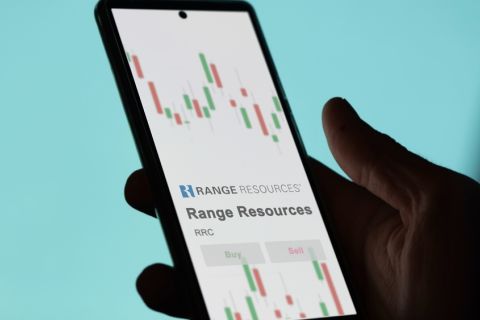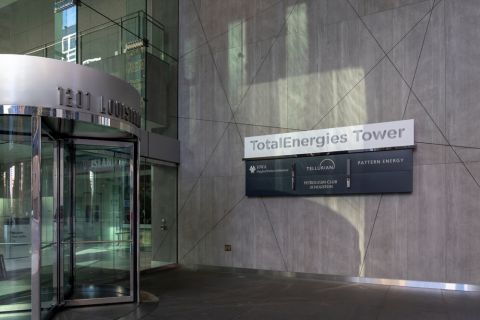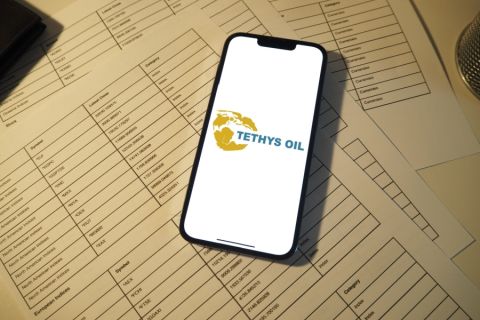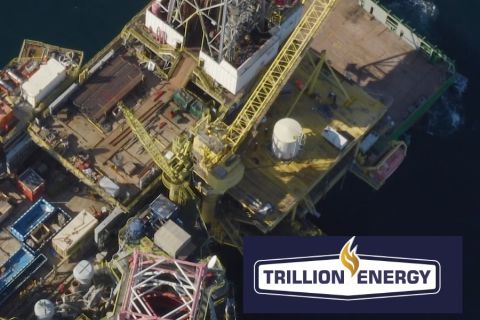On New Year's Eve, several former Triton Energy Ltd. directors and managers were forging their new strategy for Dallas-based Toreador Resources Corp. The once low-key royalty company that recently became active in exploration in the U.S. added huge exploration potential in France, Turkey and Trinidad by merging that day with Dallas-based Madison Oil Co., which is also led by former Triton directors and managers. Toreador's story began in 1952 as a royalty company, which is as it essentially remained until 1998 when two former Triton officers-William I. Lee and G. Thomas Graves III-took it over and began reshaping it into an active explorer of oil and gas as well. Lee, 75, was chairman, president and chief executive officer of Triton until 1993; he retired as chairman in 1995. Graves, 52, was chairman and CEO of Triton Europe Plc until 1993. Then, Graves joined Lee in a private investment fund, Lee Global Energy Fund LP, which invested in energy-company securities. The fund eventually acquired a large percentage of shares of Toreador and approached that company's management to take it over. Meanwhile, other former Triton officers and managers were actively forming Madison Oil. Its interests were entirely abroad, some purchased in just the past year. The all-stock combination of Toreador (Nasdaq: TRGL) and its U.S. assets and cash flow, with Madison and its international assets, creates a company now boasting daily production of about 3,425 barrels of oil equivalent, proved reserves of 15.3 million BOE and interests in 4.8 million net undeveloped acres in the U.S., France, Turkey and Trinidad. Of its proved reserves, 33% are in the U.S. and 53% are gas. The international assets are 100% oil. The total mix is 83% oil. The company's stock was trading at press time at approximately $4.60 a share, for a market cap of approximately $49 million. Its long-term debt was $35 million. Graves, who is president and CEO of Toreador, visited with Oil and Gas Investor upon the merger with Madison, explaining directors' plans for the company. "As we think back on the Triton strategy, we like to think it would have worked a little better had there been a strong domestic side," he says. Investor What was your interest in acquiring Madison Oil? Graves Madison gave us the opportunity, in a single transaction, to reshape Toreador in three ways. First, the merger balanced Madison's high-potential international exploration portfolio with Toreador's strong domestic cash flow and exploration, and combined it with the stability of Toreador's domestic perpetual-fee and mineral-royalty interests. Second, it brought Madison's very strong technical team to Toreador, giving us the incremental exploration, operating and exploitation capacity on both the international and domestic side of our business that will move us up a substantial notch as an explorer and a producer. Third, the combination created an entity of sufficient size to attract a broader range of investors to give Toreador access to a variety of outside capital. Not only will this provide additional operating capacity, it will ultimately increase the liquidity in our stock. Investor Are you hoping to be as successful abroad as Triton? Graves Absolutely. That's the fun part about it! That, and the fact that this is a reunion of sorts. Two of Madison's explorationists and its chief financial officer are also ex-Triton folks. We are looking forward to getting back together and we each see the opportunity to build a "new Triton." Mike Fitzgerald, who is Madison's vice president of exploration, was responsible for Triton's discoveries in the Paris Basin in France. Ed Ramirez, Madison's senior geophysicist, worked with Mike on the French discoveries and, more importantly, did the geophysical mapping on Triton's Colombia discoveries. Madison's CFO is Dick Preston. He was CFO of Triton Europe Plc and treasurer of the parent company after returning to the U.S. Madison's chairman, Herb Brewer, will join our board. Herb was a director of Triton and was Triton's senior vice president for exploration. Investor Was the New Year's Eve closing of the Madison-Toreador deal for tax reasons? Graves Taxes were a consideration. More importantly, we wanted to file a 2001 10-K that reflected the added value of the Madison reserves along with the December 31 balance-sheet information. Investor Toreador's stock price fell when you made the Madison announcement. Graves There was an arbitrage play going on between Madison and Toreador shares. The Canadian traders were shorting Toreador and buying Madison. The pressure from the short selling pushed Toreador's stock price down. Investor What do your shareholders think of this substantial change in strategy? Graves We have had very positive feedback from them. During 2001, we worked towards fulfilling a strategic commitment to become much more of an exploration-focused company. Our shareholders have been following this plan of evolving growth since the summer of 1998. Now, as a result, they are very supportive about the addition of Madison's high-potential exploration projects overseas. Given our management's and board of director's ties to Triton Energy, this acquisition really did not surprise them much. Investor When you joined Toreador in 1998, had the company already become an exploration company, or did it begin with you? Graves That shift occurred when our team got involved. When we made our investment in Toreador, the company had the same core set of properties it had had for nearly 50 years; it was principally a mineral and royalty company with a relatively small portfolio of nonoperated working interests. Investor Do you operate anything right now? Graves We operate only a handful of properties in the U.S. We have tried to be as efficient as possible in deploying our capital and we have tended, wherever we could, to stay out of actual operations. Overseas, Madison is an operator in the Paris Basin of France and in three different sedimentary basins in Turkey Investor Madison's assets in the Paris Basin were Triton discoveries? Graves No. The original Triton discovery was in the Paris Basin and Triton ultimately discovered six fields in the basin, but the Madison properties are different fields altogether. Investor You are using credit facilities to access extra capital now. Will these be sufficient for your capital needs much longer? Will you issue more stock or sell bonds? Graves For now we are fine with our credit facilities. The Bank of Texas facility is $22 million, and the other is a $23 million line with Barclays Bank U.K. Nonetheless, we do have an aggressive capex budget for 2002. While we can fund our current drilling program out of free cash, it will be in our best interest to complete a capital financing-reducing debt-to strengthen our balance sheet and gain more operating flexibility. Toreador's capex budget is $22.5 million for 2002. About 25% of this is for domestic programs. Of the balance, the majority is for France and Turkey. We have budgeted approximately $1.25 million for Trinidad where we hope to drill two wildcats, probably in the third quarter. Investor Will you make additional acquisitions in 2002? Graves Domestically, given the right terms, absolutely. We are pursuing this very aggressively. We have been successful on the acquisition side, allowing us to build a good, solid base of cash flow. We have a group of people in-house who focus on that side of the business. That is their principal responsibility Internationally, we feel acquisition opportunities will probably now begin to come more easily. As the majors continue to consolidate their activity, they are going to make more dispositions as BP did in Turkey of its Arco properties. As a result, there are going to be some attractive opportunities on the international front. We seem to be on the front end of a cycle in which the majors and the large independents are going through the same rationalization process they started in the U.S. several years ago. It appears to be just now picking up speed overseas. While we think the opportunities will be better overseas, I do not want in any way to send the message that we are abandoning our roots at home; we want to keep the balance between the two. As we think back on the Triton strategy, we like to think it would have worked a little better had there been a strong domestic side to the story. Investor You have a 35% interest in the Internet-based oil and gas asset divestment firm EnergyNet.com, which had a loss of $517,000 in the first nine months of 2001. Will you continue your investment? Graves We made that investment as an opportunity to help create a marketplace to accomplish something we needed to get done. Toreador held hundreds of small properties that were of no strategic value, doing little more than take up file space and for which we had no market. Our investment in EnergyNet was literally made to ensure the economic viability of what we saw as a unique marketplace that did not exist anywhere else. In the live outcry market, the auction houses make no effort to accommodate the sale of smaller properties. Enter EnergyNet.com: during the last two years Toreador has been very successful at selling our small properties at an average 15% premium to where we set our minimum bid. During this same period, we have seen EnergyNet gradually reduce its monthly cash burn and it is now approaching breakeven. While we do not look at this investment as an immediate barnburner, we think EnergyNet will work its way to profitability and that it will be one of the very few survivors in the oil and gas Internet auction business. We expect to maintain our investment, and more importantly, we see it as a means to continue to make these strategic divestitures. As time passes, we expect to auction larger properties on EnergyNet. Every acquisition we have made has a group of properties that fall at the bottom. They are never given any value in the analysis of the property set, yet when you close the acquisition, the buyer does not have any way to liquidate those bottom-tier properties. At Toreador, we have found we can turn those into real money, plus a good rate of return Investor Where is your production presently? Graves We have quite a bit attributable to royalties in Mississippi and Alabama that contribute about 40% of our gross sales. The working-interest side comes mainly from Texas and then the rest from Oklahoma, New Mexico and Louisiana. Investor In terms of asset value, what size company would you like to see Toreador be five years from now? Graves Right now, we are at roughly $50 million in market capitalization. To truly be able to access the capital markets, we need to be at $250 million. We need to reach that goal first to know where we will be in five years. Investor Would you do anything different from how Triton pursued its goals? Graves Nobody here is married to the same process Triton went through. I can tell you there were several instances where it would have been the better decision to go ahead and sell out as opposed to dealing with the cash flow problems Triton's success brought. Take the profit, pay your stakeholders, and start over, perhaps. This should always be in the back of your mind-keep the options open. Looking at the Triton story, with the benefit of hindsight, there is one thing that is certain: the inventory of exploration opportunities the Madison team has brought with them. They are the type that really could replicate what my colleague Bill Lee had in mind when he first put Triton together-expose a small-cap company to exploration projects where one discovery could mean a multiple of three, four or five times existing reserves. But, the thing you cannot lose sight of is the exit strategy, or at least a strategy where the shareholder has an opportunity to have his payday. Everyone at Toreador is focused on building shareholder value. To do so, you have to be exposed to good technical opportunities in uniquely prospective parts of the world. If those opportunities come to fruition, you have to remember where the exit is. Investor Would you start a company a third time? You're only 52. Graves There is still lots of time. Investor What else? Graves There is one element of our strategic mix that we have not touched on that is crucial to our overall stability: the domestic side of our asset base. It is important that when someone looks at Toreador they understand we intend to try and maintain a revenue mix, barring the opportunity to make a substantial investment in exploration that enables us to produce a significant portion of our income from our mineral and royalty portfolio. At the present time almost 40% of our revenue comes from a growing group of fee mineral and royalty properties in the U.S. that allow Toreador to have a much more stable base of income in what is going to continue to be a volatile commodity market. One of our goals is to try and maintain this mix of the more conservative and the more aggressive to hedge our activities. When people look at Toreador, they need to look at the hidden value in the mineral and royalty portfolio that provides us this additional stability. When we reach the point at which domestic crude prices are marked-up to more of a premium over the prices of the international grades, these domestic assets will work even harder for the company and its shareholders. This comes back to our analysis of what we did and did not do at Triton.
Recommended Reading
Range Resources Expecting Production Increase in 4Q Production Results
2024-02-08 - Range Resources reports settlement gains from 2020 North Louisiana asset sale.
Pemex GoM Oil Platform Blaze Leaves One Dead, 13 Injured
2024-04-08 - A Coter contract worker died from a fire that broke out at Pemex’s Akal-B platform this weekend that also left several others in serious condition, the company said.
TotalEnergies Acquires Eagle Ford Interest, Ups Texas NatGas Production
2024-04-08 - TotalEnergies’ 20% interest in the Eagle Ford’s Dorado Field will increase its natural gas production in Texas by 50 MMcf/d in 2024.
Tethys Oil Releases March Production Results
2024-04-17 - Tethys Oil said the official selling price of its Oman Export Blend oil was $78.75/bbl.
Trillion Energy Begins SASB Revitalization Project
2024-04-15 - Trillion Energy reported 49 m of new gas pay will be perforated in four wells.





